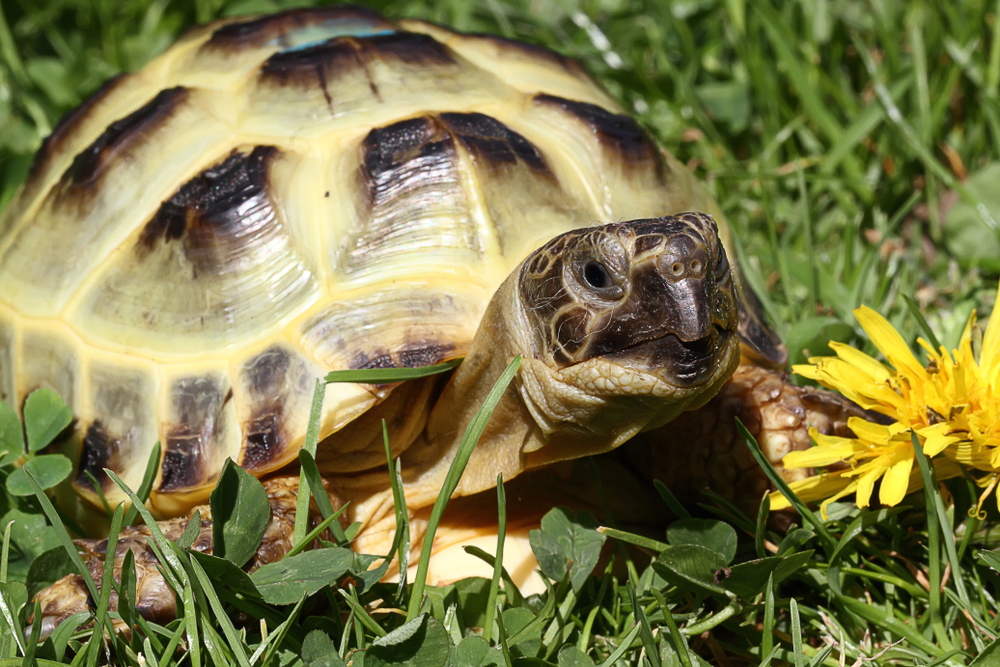Russian tortoises are becoming increasingly popular as family pets due to their manageable size, docile nature, and relatively low maintenance needs. These charming reptiles not only bring joy to a household but also offer educational and developmental benefits for children. Understanding why Russian tortoises are excellent pets for teaching children responsibility can help families make informed decisions about pet ownership.
Low Maintenance and Easy to Care For
Russian tortoises are relatively easy to care for compared to other pets. They require a well-maintained habitat with appropriate temperature, humidity, and UVB lighting. Once their environment is properly set up, their daily care is straightforward. Feeding them a diet primarily composed of leafy greens, vegetables, and occasional fruits is simple and does not require specialized knowledge. This makes them an ideal choice for families, including those who are new to keeping reptiles.
Long Lifespan
One of the appealing aspects of Russian tortoises is their long lifespan. These tortoises can live for several decades, often reaching up to 40 years or more with proper care. This longevity allows families to enjoy their companionship for many years, making them a long-term commitment that can grow alongside children.
Educational Value
Keeping a Russian tortoise provides an excellent educational opportunity for children. Caring for a pet teaches kids about biology, ecology, and the responsibility of meeting another living being’s needs. Observing and interacting with their tortoise allows children to learn about reptile behavior, diet, and habitat requirements. This hands-on experience can spark a lifelong interest in science and nature.
Teaching Responsibility and Compassion
Russian tortoises are excellent pets for teaching children responsibility and compassion. The daily tasks involved in their care, such as feeding, cleaning the enclosure, and monitoring their health, require consistent effort and attention. Children learn to prioritize these tasks and understand the importance of caring for another life. This responsibility helps build a sense of empathy and compassion, as children see the direct impact of their care on their pet’s well-being.
Gentle and Docile Nature
Russian tortoises are known for their gentle and docile temperament, making them safe and enjoyable companions for children. They are less likely to bite or scratch compared to other small pets, which reduces the risk of injuries. Their slow movements and calm demeanor make them easy to handle and observe, providing a sense of security for young pet owners.
Minimal Space Requirements
Despite their need for a well-maintained habitat, Russian tortoises do not require a large amount of space. A properly sized indoor enclosure with access to outdoor time during warm weather is sufficient. This makes them suitable for families living in apartments or homes without extensive outdoor areas. Providing enrichment through various substrates, hiding spots, and climbing structures can keep them entertained and mentally stimulated in a limited space.
Promoting Outdoor Activity
When the weather permits, Russian tortoises can benefit from supervised outdoor time. Creating a secure outdoor enclosure allows them to bask in natural sunlight, which is essential for their health. This outdoor activity encourages families to spend more time outside, enjoying nature and engaging in physical activity together.
Conclusion
Russian tortoises offer numerous benefits as family pets, from their manageable care requirements to their educational value and gentle nature. They provide a unique opportunity for children to learn responsibility and compassion, making them an excellent choice for teaching important life skills. For more insights on why Russian tortoises are excellent pets for teaching children responsibility.

“Unable to type with boxing gloves on. Freelance organizer. Avid analyst. Friendly troublemaker. Bacon junkie.”











